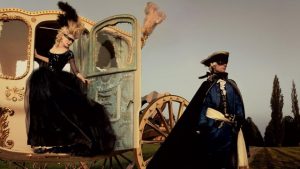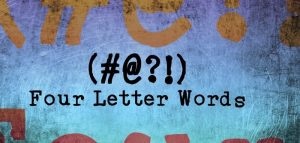Posts by Heather Webb
imdb.com
One of the most compelling elements of any novel is the setting in which it takes place. If a reader can smell the burning sugarcane in the hazy Caribbean heat or feel the scratchy mittens that ward off the chill of Irish winter, the author has done their job. But how does an author create a setting pulsing with life? There’s more to it than meets the eye. First and foremost:
Is your narrative set firmly in place and time?
Sometimes, writers make the mistake of waiting for several pages or even several chapters before constructing a world a reader can really fall into. We get caught up thinking it’s more important to introduce the character(s) or their backstory, or we even get tangled in the inciting incident. But we need all of those things and a strong sense of place and time immediately. It can be irritating as well as jarring for a reader to believe they are reading one genre of book only to discover the book veers in a different direction entirely.
For example, recently, I was reading a contemporary novel that turned out to have magical realism elements about a third of the way into the story, and even a bit of an alternate world as well. Because there had been no groundwork laid from the get-go, no clues or foreshadowing or a sense that not all is as it seems below the surface, I found it unbelievable and I put the book down. We must establish place and time—and any sort of funky, different, magical, far-away, historical elements—on page one. Let’s look at some tips to get us started.
Location, Location, Location: Researching locations far from our homes is so much easier these days with Google and its giant database of resources and maps. That said, it is not the same thing, at all, as having spent time in a location. There is an essence to a place—its smells, its heartbeat, its soul—that cannot be found on the internet. When you can, travel to the location you plan to inhabit in your mind for the next year(s) while working on your manuscript. It’s expensive, but you will bring an authenticity to the page that can’t be faked. Once you’ve done your prewriting and research:
Choose the location wisely.
After you’ve chosen your location, next do a language check.
Language Check. Be sure the language you have used is indicative of the era and location. I will add a […]
Read Morehttps://bit.ly/2lo42n8
Isn’t it funny how your average “lay person”, or non-writer is amazed at the way we can focus on one project for so long? But we’re up for it! We can go the long haul, and we do it well. What these “lay people” don’t understand is how obsessed passionate we are about our works. How could we not finish what we’ve started? We can’t leave John Doe hanging from one limb on Death Star 1. We have to see John through to the end. While that laser focus is incredibly helpful, I’ve discovered the beauty of splitting my focus of late, of working diligently on more than one project at a time. But how many is too many and is the juggling worth it?
Read MoreWelcome back to All the King’s Editors, our regular feature in which one of Writer Unboxed’s stable of editors line-edits a few pages that has been submitted. This gives you a chance to see editing advice applied in its natural habitat. If you’d like to contribute a sample to be edited, click HERE for instructions.
Remember, editing is as much art as science, and your take on the passage may differ. If so, feel free to join in the discussion at the end, but above all, be kind.
Reims, France 1790
Her Grandmere’s gnarled knuckles engulf my fingers as she counts out each stair carved into the chalk crayere, one hundred and thirty-nine steps, not one more, or one less.[1] The strong fishy smell of whale oil burning in her Quinquet makes me sneeze and for a moment the flame dims and all goes black. [2] , mMy bare toes curl into the cold stone for balance. Then the wick flickers back to life and she tugs me forward.
“I know it’s you, Barbe-Nicole. It has to be you.” Grandmere mumbles in the silence, her opaque eyes glassy and determined.[3] White gold waves blanket her frail shoulders and reach down to her round middle.[4]
Why must it be me? [5] My insides squirm like a nest of baby mice, terrified Maman will hear us and lock Grandmere in her room again. When she woke me, ancient wrinkles accentuated by the light of her smoking lamp, she clapped her hand over my mouth before I could squawk, and wrapped me in a robe[6]. I didn’t don’t think about slippers, so terrified and thrilled, as I sneaking past my parent’s suite, through our cavernous Ponsardin Hotel, while the rest of the household slumbered.[7] Maman warned me to stay away from her mother Grandmere,; Grandmere she hadn’t been herself the past year[8].
But the spark in her bright eyes lit a portal to the past,; her fantastical stories of Marie Antoinette, her midnight sojourns through the crayeres, her constant testing of my inherited talent, as she called it. Even if Maman was is right, and she Grandmere has had lost her marbles, she willwould always be my Grandmere, the one who believes I am special.[9]
As we reach the bottom of the cavern, smells of oak barrels swollen with wine fuses with the chalk and the green smell fragrance of moss which covers the wine bottles like a blanket [10]. The ancient smell permeates my nose, enervating my sinuses, clearing away my sleepy fog. Goosebumps prickle across my chest and my toes curl into the chalk floor, like a mountain lion ready to spring[11].
Grandmere sets the Quintet on the rough-hewn table, the flame flickering on clusters of grapes she’s lined up, [like before, purple nosegays of sunshine, rain and soil] [12]. I search her wizened face for a clue, but there is no hint in her clouded eyes. She ties a blindfold around my head and nerve-endlings sting inside my nostrils. I sneeze again, cringing.
“Don’t peek.” Her voice sounds as brittle […]
Read MoreHow many posts can we read on writing advice? I’ve read hundreds, bought at least a dozen craft books, and, yet, I always come back for more. Why is that? I’m passionate about improving my craft, but also for me, it’s about inspiration. I’m always hoping to find a little nugget to light a fire under me, or find some fresh way of looking at an issue that has me stumped with a new project. Each book, each project, after all, has a unique set of needs. So without much ado, I’m going to share a few of my own writerly tips.
We begin with the very most important point:
1.Work your butt off. No really, WORK YOUR BUTT OFF. Writing is challenging and exhausting and time-consuming (and magical and exciting and so much fun and we’re the luckiest people around), but there’s no room for excuses. People who make excuses don’t run the world. They don’t finish short stories or books or become published. If you want to write, then make like Nike and JUST DO IT, and do it with all your heart.
2.Be humble. When a writer behaves like a special snowflake, their writing life is often an arduous one—both on the page because of internal expectations, and also with others in the business of publishing because of prima donna behavior. No one likes to be around an ego-maniac or a drama queen. They aren’t fun to play with, and they are especially difficult to work with. Another note on this. The most difficult thing about the publishing industry is that one minute you’re flying high and full of hope and promise because you’ve just signed with someone, or had a book release and it’s selling well. The next minute, you’re looking for a new agent or editor, or a book you loved doesn’t sell well (or at all), and you have to fight your way to another deal. This isn’t to be a downer, but to ground you in reality so you may have the best tools on your path to success. One minute we’re up, the next we’re back in the trenches, so it’s important to remain humble and generous with others. We, the creative talent in this operation, must stick together and help each other out. And remember, you aren’t better than anyone else, at least not for long.
3.Surround yourself with people who inspire you. Life is hard enough as it is. Dump the dead weight, the nags, the negative nellies, and the poor-mes. They add nothing to your life, weigh you down, and they sure as hell don’t help you feel good about yourself in a difficult business. I think this is especially hard to do for women because we have a tendency to want to take care of everyone, not rock the boat, avoid drama. The best way to avoid drama is to eliminate these people from your life. You’re worth it. Your passion for writing and great story is worth it. Surround yourself with people who fill you up and challenge you, not those who deplete you.
4. Read every single day. There is always time. Everyone can read for ten minutes before bed, or listen in the car, or while cleaning or cooking […]
Read MoreCan you think of a moment when something felt so right, it seemed as if idea or information was whispered directly into your ear by a little fairy at exactly the right moment? Or there was that time you picked up a book that called to you for some reason. Perhaps it was on your shelf for months—years—but at that moment, you knew it was time to read it. Boy, are you glad you did, because as you’re reading, you notice, oddly, that this book holds a lesson for you that came at the precise moment you needed it.
I was recently reading Big Little Lies by Liane Moriarty and had a major A-HA! moment. Though the novel or genre is nothing like my work-in-progress, it got me thinking about my manuscript from a different angle at EXACTLY the right moment. In fact, that little piece of inspirational gold has up-ended the entire structure of my work-in-progress. (This is why I don’t buy the excuse that reading novels by other authors while working on your own is a bad idea. I’m inspired constantly by reading, either through a research gem, or a craft gem. Reading is a hugely important part of the writing process. But I digress…) Needless to say, it amazed and delighted me. There have been many more of these magical moments along the way….which made me think:
Where do these little gems come from, and how do know exactly when to pick that book or listen to that song? Is there something ordered about these A-HA moments that we don’t understand? Where do they come from and what do they mean?
We’re under so many influences, from social media to pop culture trends to political trends. Writers (and other artists) are particularly sensitive to these influences. I would go on to say we have a certain vision of the world others don’t; we tend to be more aware of nuance and behaviors and details that are pregnant with meaning. Does this, therefore, mean our portals are more open to serendipitous occasions in which we find PRECISELY what we’re looking for–or need?
Some would call this serendipity. I call it being tapped in to something greater than ourselves. Some sort of zeitgeist or energy field or God, if you will.
Read Morehttps://on.inc.com/2rJxoSQ
I’m a polygamist reader—I have at least three paperbacks going at any one time as well at least one audiobook in progress. It has something to do with my mood. Will it be a dystopian world or sixteenth century Amsterdam? Maybe I’ll get lost in the hallways of Rockvale High School. I have my favorite genres, for sure, but I read widely to keep up on what’s selling, to improve my craft, and to understand the difference in genres and styles for my freelance editing work. But one thing I’ve noticed about my reading habits—regardless of genre—is that certain issues ALWAYS make me put a book down. What are they, you ask?
Bad Dialogue: The number one offender for me is stilted dialogue. As soon as the characters sound like paper doll cutouts instead of people, I’m done.
Awkward sex scenes: I mean…what a buzz kill. You’re falling in love with this couple and then the narrative turns to “Insert tab A into slot B” and it’s just awful. Another problem is when the main character talks in her head nonstop through the bedroom scene. At this point, the character needs to SHUT UP and let the events unfold so the reader can get lost in the heat.
Clunky metaphors that don’t quite work: Bad metaphors are like nails on a chalkboard. Mixing metaphors, weird comparisons, two sets of ideas that are opposed to one another or incongruous…ACK. It makes me grind my teeth just thinking about it.
Whiny protagonists: I’m not a fan of the victim in real life so it’s no surprise to me that whiny characters, or those that sit around and feel sorry for themselves (beyond a shortish allotted time), get on my nerves.
Reading tastes vary drastically, however. What makes my eyes roll back in my head may not bother you at all. I was curious what other professional writers had to say about this topic. I wondered if we were more or less aligned on the reasons we stop reading. Their answers varied as much as their novels do.
For some, it’s all about the craft.
“If I find myself taking out an imaginary red pencil to rewrite sentences or mark queries while I read, I’m out. This signifies to me that the book’s voice, plot, or characters aren’t quite developed enough yet that I can lose myself in the author’s “story world”—which is where I want to be as a reader. You have to be able to suspend your disbelief, not get caught up with critiquing the writing.”—Kris Waldherr, author of Lost History of Dreams
“I can’t hang on with a story if I feel as if the details ramble and are inconsequential. I have to care, or I stop reading.”—Amy Nathan, author of Left to Chance
“When the book purports to be contemporary fiction and the dialogue could not be read aloud with a straight face. I don’t give up easily but unrealistic dialogue is a deal-breaker for me”—Amy Impellizeri, author of The Truth About Thea
“Generally shoddy prose will put me off. It doesn’t need to be flowery, but it needs to have some grace. Info dumping drives me nuts. But at […]
Read Moreyunna – WordPress.com
Everyone here at Writer Unboxed thinks of themselves as a writer; someone who loves words, appreciates beautiful craft, and spends many dedicated hours on their storytelling. But at the core, we’re more than just wordsmiths. We are creators. This is a hugely important distinction.
The word creator is far more accurate a depiction of what we do because creator gives all of that wordsmithing power and energy. Merriam-Webster’s definition of create is to bring into existence, or to produce through imaginative skill. Creators bring people, places, and events into existence. Creators evoke emotions. Creators produce worlds through our imaginative skills. As writers–creators–this is precisely what we do.
And just think of the energy that entails.
We’ve all seen the stereotypes of artists pacing and staying up all hours of the night, their houses and studios in disarray as they create that next perfect portrait, sculpture, etc. There’s so much movement happening within their studio space–the pacing and hair-pulling, sure, but there’s another kind of movement happening. The movement happens as an idea is sparked. The same thing is true for writers–there is so much movement happening inside us, even while sitting at our desks. As we create and bring something/someone into existence, there is a load of dynamic, kinetic energy being expelled.
Say you’re working on your protagonist’s motivations. Despite sitting still, you’re digging deeply into someone’s psyche, like excavating a mine, chipping away black rock to find diamonds. Those diamonds are nodes of emotion we need to tap into, in order to understand our characters hearts and souls, in order to understand what they want and what they need. This mining takes an intense and dynamic sort of energy that needs to be both focused and steady, and also extremely active. In other words, kinetic.
Which leads to my point today.
Read More
Today you wake up, put the coffee on, and think of the long, luxurious weekend of eating and family time and days off from work. It’s Thanksgiving morning, and you couldn’t be happier about it. But as you go about your morning, you start to hear this niggling voice in your ear and your day begins to shape a little differently than you had hoped. The problem is, you’re:
WHAT? You’re not writing! You feel unsettled and chastise yourself for each moment you spend away from the keyboard. You have trouble enjoying yourself in the moment. Why is this? Is it because you’re behind your deadlines, or have too much to do? Perhaps it’s the Muse, poking at you, prodding you, begging you to get your butt-in-chair. Maybe you don’t know how to just TAKE A DARN BREAK.
(Or maybe it’s just the restless, kinetic energy that comes with being a creative.)
But on this Thanksgiving Day, I entreat you to—instead—do the following:
I give thanks for all of you, my comrades in arms—my inspiration—and my friends. I wish you all the warmest, brightest of holidays, no matter what form that takes.
And you had better get back to the writing tomorrow!
Read More
https://giphy.com/search/ronald-miller
I just attended the Writer’s Digest Conference and as always, I returned home tired and full of inspiration. But there’s something that has stuck in my mind that is nagging at me. Saturday afternoon, I was sitting in the lobby, chatting with several aspiring writers who had a lot of questions about the industry and genre categories among other things. At one point, I overheard a conversation between two attendees adjacent to me. One of the writers turns to another and says, “Isn’t this so great? I’ve met a lot of people, exchanged cards with them.” Etc. Etc. But the other person shrugged and said, “I guess, but I think it’s lame the way these things are all about sponging off of the wannabes to make a bunch of money.”
I couldn’t help but stare at this person.
All I could think was: sure, I suppose one could look at a conference that way. But I’m frowning, even as I type that. Maybe this person had received a bunch of rejections lately–or maybe they just drank a bottle of misery for breakfast. Either way, I was flabbergasted.
I guess this person doesn’t realize the pro authors who attend donate their time and hard-won knowledge, and they are rarely paid, yet they do it happily to give back, to help others succeed. I suppose this person assumes the conference generates a tremendous amount of money based on conference fees, but doesn’t grasp the extraordinary amount of money needed to put on a convention in midtown Manhattan.
I have to admit, this comment irritated me, and the fact that I felt compelled to write this post, I suppose, shows just how much. As I look back on my years at conferences, all I feel is gratitude. Gratitude for the many generous and knowledgeable people I’ve met. Gratitude for the opportunities to connect with professionals who directed me on my path to publication, and also guided me in my learning.
Oodles and oodles of gratitude.
In fact, in the spirit of gratitude, I’m going to break down the positives about attending a writer conference.
I have to begin with:
Read Morehttps://pursuetheclue.com/
I’ve been studying bestselling novels of late. I’m trying to get a feel for what is working and why; suss out the author’s special sauce that seems to be speaking to readers. I have to admit, sometimes I’m befuddled when the quality of the prose is lacking or the story drags in too many places. Or worse, when the characters are whiney and aren’t particularly sympathetic. But after some careful comparison, I think I’ve figured out the secret.
Regardless of genre, what keeps a reader going is nothing more than a big question. A mystery.
Who among us doesn’t love to be tempted and tantalized with secrets, or burning desires, yet uncovered?
THE BIG QUESTION
As an author of historical fiction, I enjoy weaving in sparkling details—the frothy petticoats of a princess, a lamb bone used for buffing marble, or steam cars cranked by hand. But they won’t keep a reader going for the long haul through the novel’s twists and turns. In literary fiction, the beautiful writing is what you come for, but you keep reading to see how the character changes, how they confront the big issue the author has chosen for them. You keep reading because you don’t know what will happen, but you must find out. I mentioned historicals and literary fiction because they can be less plot-driven than some other genres. The same goes for some women’s fiction, but the end result is the same: all good fiction is riddled with mysteries.
With my first few books, I set these mysteries up without realizing they were there. As I have evolved as a writer, I’ve discovered how important it is to create these questions on purpose and to plant them strategically. As you might suspect, the most important question is the HOOK, or the mystery that is connected to the premise of the novel.
For example, in Pride and Prejudice by Jane Austen, we worry whether or not Elizabeth Bennett will fall in love, or be a spinster in want of a home after her father dies, simply because her prejudice gets in the way? This is the central mystery. Once this question is planted, the author expertly layers in others to support the premise because:
Read MoreFailure is a four letter word. We fear it, we dread it, and we try to avoid it at all costs. It’s one of those sneaky words that writers tend to despise because we understand its power more than anyone; we know how many layers it carries, how much destruction it causes in its wake. We give it so much meaning, in fact, it paralyzes us. Why not, instead, commit this foul word to memory, stare it in the face, and run straight at it, helmet on? Why not laugh at its pathetic attempt to demean what we are worth? FAILURE, after all, only holds as much meaning as we assign to it. Don’t writers grasp the power of words better than anyone else?
How, then, must we cope with this ever-foul sense of failure? There are two skills we need to survive it:
ACCEPT WHEN YOUR CRAFT NEEDS WORK
This is really difficult sometimes because it involves balancing feedback from those who criticize your work, and listening to your intuition. Our ego makes us believe critical feedback is wrong, and that we just haven’t found the right audience yet. But in time and through lots of practice, we learn to discern the difference between all these voices and what’s good advice and bad. In time, we make good friends with humility–our best friend in writing–and discover the gems hidden within the harsh feedback or negative reviews. We accept that our craft needs work–and will always need work on some level.
I recently saw an article about a nanotechnologist named Jason Haaheim, who switched careers to become a timpanist in the Metropolitan Opera in NYC. His view of failure is right on.
Jason says, “I think, for a lot of people – and that’s not just in orchestral music – but a lot of people in performing arts, acting, just anything like this. You start off with a desire to do this thing, this passion about some sort of art form. And yet you’re not skilled enough. Your craft does not evolve to the point you would be able to do it. So I think a defining experience for a lot of people who get into these creative fields is you have to really embrace failure. Frame it as constructive growth and be interested in that.”
Once we develop to the point of becoming published, our learning shouldn’t end—and it doesn’t. If it does, it means you aren’t challenging yourself enough as a creative. It means you’re too afraid of failure.
Curious how other authors regarded failure, I asked them to talk about their experiences:
“Failure stings at first, then hurts, then hurts some more. But when the hurt finally lets go, reflections begin and they are always deeper, more important than those brought by success. Failure makes me rethink my goals, make difficult decisions on what I will work on next. And then–as important as any insights to my own writerly condition–it makes me more forgiving, more thoughtful, more empathic.”—Eva Stachniak, international bestselling author of The Chosen Maiden
Read More
https://stopwatch.onlineclock.net/
As I sit down to write this post, I’m racing the clock. I have two client manuscripts due, thirty manuscript openings to read for a workshop, eight sessions for a writing retreat to plan, and a book to promote. To say nothing of my children’s activities. Thank God I am about to unload a chunk of pages of my latest novel on my writing partners for feedback, for a tiny break. Writers are busy. We’re stressed. We’re anxious. No matter how much time we have to write, it never feels like enough. So how do we survive it at all? Below, I’ve shared a few tips that have helped me stay afloat over the years. Also? Drink coffee and wine. Lots of it. And exercise like you’re being chased by a bear. It helps.
THE WRITER WITH A FULL-TIME JOB
Read Morehttps://bit.ly/2pdI8E6
I have this weird habit of tracking patterns in my head. When I worked on my Master’s degree in Cultural Geography, I suddenly realized I was a social scientist at heart, watching people do their thing and examining why they did it. How they shape their environment and how their environment shapes them—their habits, their beliefs, their cultural norms, etc. It should have come as no surprise to me that I would follow market trends in publishing as I discussed a couple of months ago (HERE), or that I would examine my writing process (and those of others) so closely. Why people write the way they do, their methods, their tics and preferences, their successes or failures. Could I have luck employing their process, too?
After a lot of thought and plenty of practice, the most profound thing I’ve discovered in all of these examinations about process is that each book requires a new set of “rules”. Process is transient. It’s fluid. It begs to be made relevant after each new start.
For my first couple of novels (historical fiction biographies), I worked with a detailed outline and character maps and filled in the flesh, heart, and soul of the book from there. For the short story I wrote for a WWI anthology, I had three major concepts in mind—a mother’s grief, revenge born of pain, and a character with dual citizenship who grappled with belonging nowhere—and I pantsed the entire plot from this premise.
For my third novel, I worked with a well-known set of characters and the canon associated with their story. I had to create new plot threads, breathe new life into these characters. A retelling, if you will. The character maps didn’t help me one bit here until I had already written a full first draft. I needed to understand why the original author created the characters the way he did in the first place, then deconstruct them, and give them an entirely new dimension through their backstory.
My latest that’s releasing this fall, is in an epistolary format with a framing story. A new style, still!
With each book, there were pieces of my process that didn’t change, regardless of the structure. I had to discover who my characters were by exploring their backstory. I needed to know where the story began—that inciting incident—and how it would resolve itself, as well as the stakes driving my character to change. I needed a pitch, a feel for the themes I would explore, a general idea of how these pieces would fit into a three act structure, at least loosely.
But the process I used to write each of these works changed. I think this is the reason why:
Each book baby has different needs. I can’t help but compare a manuscript to a child. The metaphor works on so many levels. For example, I have two kids. They come from the same household with the same parents, and the same set of rules and expectations. Yet they are different people completely, with different internal lives and, therefore, different needs. I try to treat them fairly, but fair does not equal SAME. Each of your manuscripts will have different characters. plotlines, structures. Different needs. This will […]
Read More

















